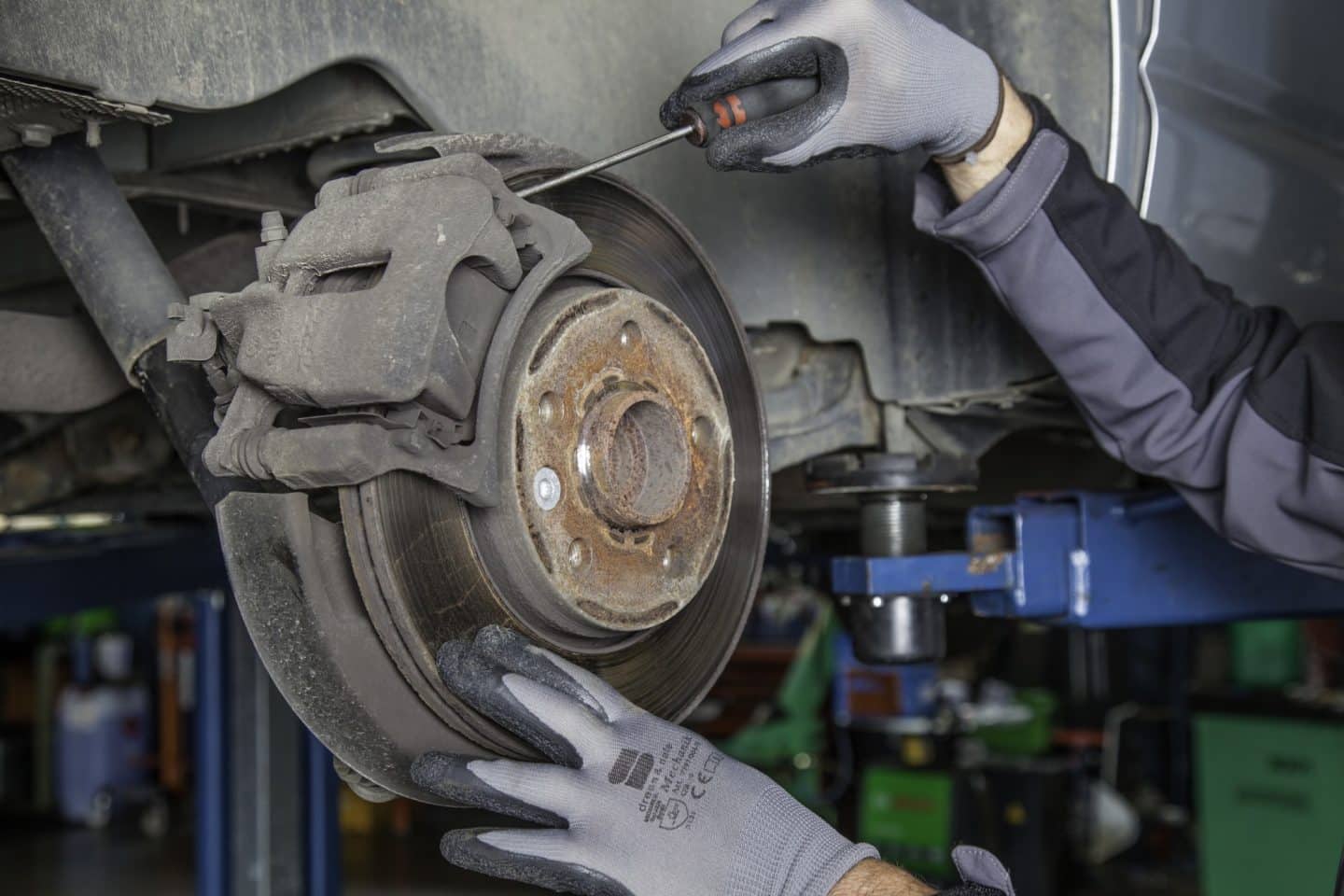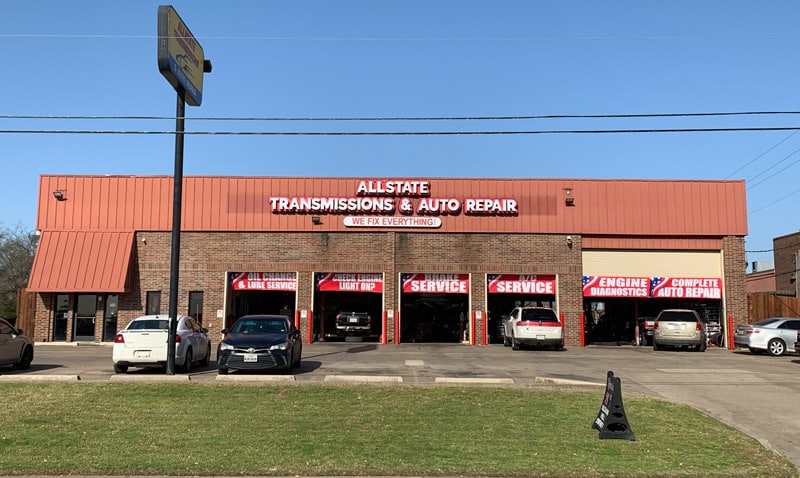
Picture driving along and pumping on the brake pedal–and sliding forward. Your car would careen off the road, slamming into obstacles, and endangering everybody inside. To keep this from happening, you must maintain your brakes in good condition.
Read on to learn about the components of your braking system, and how to tell when you need different kinds of auto brake repair.
How Brakes Work
Braking systems contain many different parts. When the brake pedal is pushed down, it pushes fluid through the master cylinder. The master cylinder in turn pushes hydraulic brake fluid down towards the braking system.
The braking system contains a rotor (attached to the auto wheel), calipers, and brake pads. Each caliper has brake pads attached, and can squeeze the brake pads against the rotor when the hydraulic fluid applies pressure. The brake pads rub against the rotors, slowing them down and braking the car.
Having so many pieces in a braking system means that you will need to have several different components inspected and maintained.
Brake Pads
If you notice screeching, grinding, or squealing when you push on the brake, or if you need to press down further on the brake than usual, your brake pads may be wearing down.
Brake pads are covered with a substance that looks and feels like thick sandpaper. When this coating wears down, you need new pads. Brake pads last for a certain amount of miles ranging from 25,000 to 75,000, depending on the brand and type of brake pads.
Many brake repair shops will inspect your brake pads as part of a maintenance service.
Master Cylinder
If your brake pedal sinks under pressure, the master cylinder may be worn out. You will need to replace a failing master cylinder.
Rotors
If you hear squeaking when you apply the brakes, or the front of the car vibrates when you apply the brakes, your brake rotors may have gotten warped. The auto mechanic may be able to resurface the rotors to straighten them out, but otherwise, they will need to be replaced. Rotors should be resurfaced or replaced every time you have brake pads changed.
If you hear a metallic grinding noise when you brake, your pads may have worn down. This causes the metal pads to grind against the metal rotors, warping or damaging them. In this case, you will need to replace the whole set of rotors.
Calipers
Calipers last longer than brake pads, but you will probably need to replace them after 75,000 miles or 7-10 years. Brake fluid might start leaking out, the pistons might stick, or the caliper may not move freely. Sometimes it is possible to repair or lubricate individual pieces, otherwise, you will need to replace the entire caliper.
Other Components
Braking systems also involve brake fluid hoses, electronic sensors, hydraulic components, and the springs and hardware inside drums. Make sure all of these pieces get inspected regularly and take your car in for automatic brake repair if they start failing.
Schedule Brake Repair
If you experience a grinding noise, squealing, shaking, or a burnt rubber smell when you push the brake pedal, contact us for auto brake repair. Whether the problem is with your brake pads, cylinders, rotors, or calipers, we’ll take care of it and get you back on the road as soon as possible.


